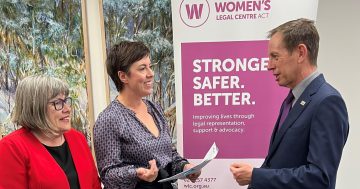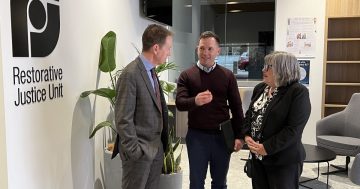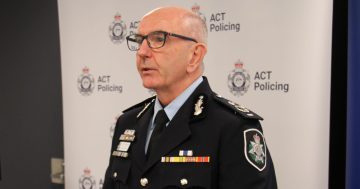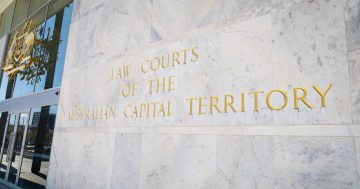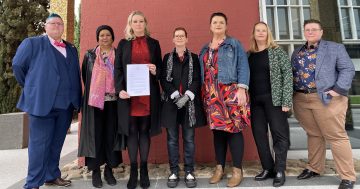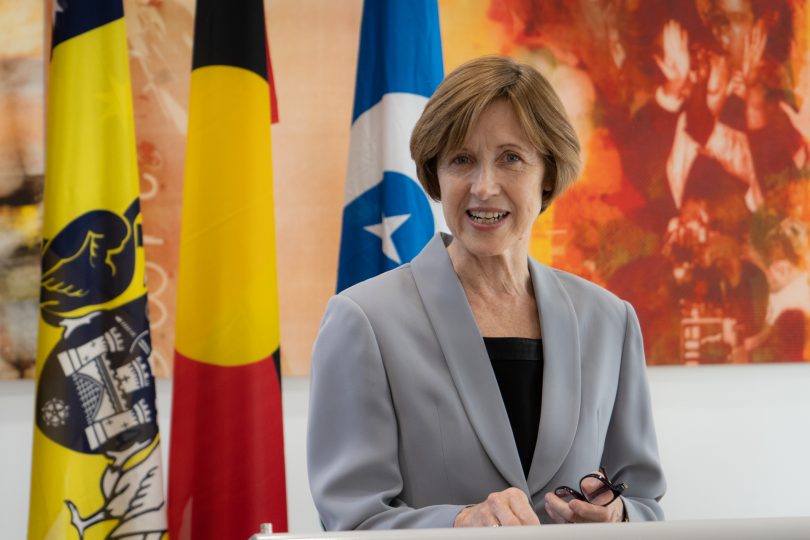
Renee Leon will head up the ACT Sexual Assault Prevention and Response Steering Committee. Photo: Dominic Giannini.
The former CEO of the ACT Justice and Community Safety Directorate, Renee Leon, is so determined to see sexual assault reform in the ACT that nothing was going to stop her from providing input to achieve change.
And now Ms Leon has been appointed to head the ACT Sexual Assault Prevention and Response Steering Committee, stood up by ACT Minister for Women Yvette Berry to drive reform in the ACT and provide advice on the government’s pathway to change.
“I was very pleased to be asked to lead it,” said Ms Leon, who was also the Secretary of the Department of Human Services between 2017 and 2020.
“I would have been otherwise talking to [Victims of Crimes Commissioner] Heidi [Yates] and offering my help in informal ways if I could because I just recognise what a terrible impact sexual assault has on [a person’s] lifetime if they experience it.
“[It has] a shocking impact on our community as a whole. It is so underreported and under-convicted, and undermines the wellbeing and people’s sense of justice and fairness in their community.”
Ms Berry has set up three working groups – one for prevention, one for responding to sexual assault, and one for law reform – that will meet weekly to inform the government’s strategy and reform agenda to tackle domestic violence and sexual assault.
Another reference group that will look at sexual harassment and assault in the workplace has also been stood up.
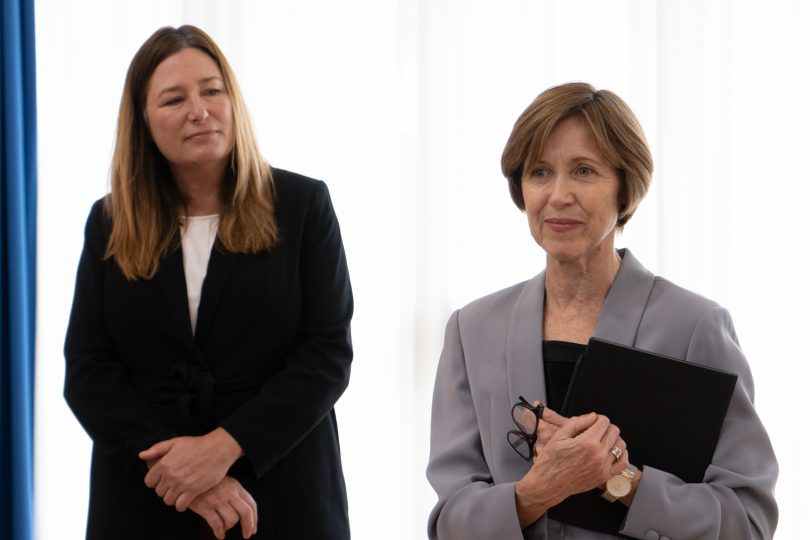
ACT Minister for Women Yvette Berry (left) – pictured with Renee Leon – is working on a set of reforms and government responses to sexual violence and abuse in the ACT. Photo: Dominic Giannini.
ACT Attorney-General Shane Rattenbury said law reform and low prosecution rates are tricky areas to tackle because “it tends to come down to one person’s word against the other”.
“It can be discouraging for a lot of victims,” he said. “The whole legal process is very daunting.
“Across the board, we need to think carefully about how we can make that a less daunting environment, while at the same time retaining the important legal principle of the presumption of innocence.
“[So] we need to track so much further back and deal with prevention issues to change the culture of sexual relationships in Australia.”
Ms Leon said it is important that any justice reform captures the lived experiences of people who do not feel they can report what happened to them, with sexual assault and harassment being one of Australia’s most underreported crimes.
This means there needs to be a focus on helping survivors and validating their experiences, even if they choose not to make a formal complaint or report.
“It is a time of great community outrage, and particularly outrage by women, that women’s voices and survivors’ voices are so often not heard,” said Ms Leon.
“Making the justice system more amenable to victim-survivors’ experiences could increase the proportion of people who report.
“There will nevertheless be many who will not report for a host of reasons, and they need support, advice, therapeutic help and validation.”
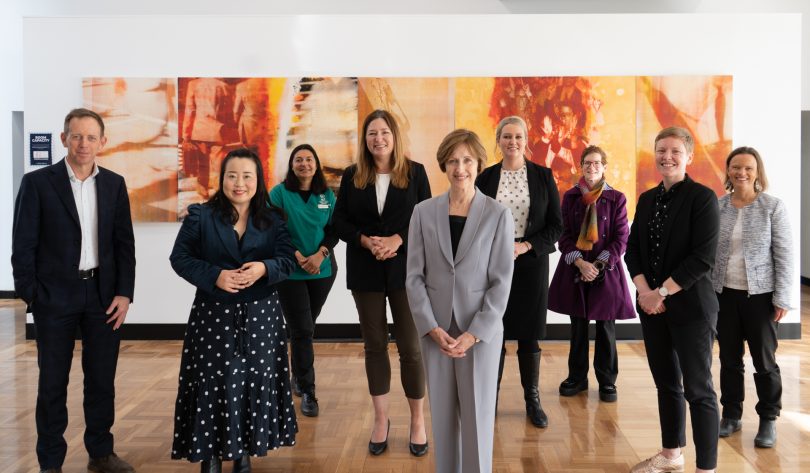
The sexual assault reform working groups have brought together a number of key stakeholders. Photo: Dominic Giannini.
Commissioner Yates said the way the current justice system and the court process is construed can bring on additional trauma to victims and acts as a barrier for people coming forward.
“It is essential we improve that process from the very first step when they consider making a report – ‘Where can I go? What is going to happen when I knock on the door of my local police station? What will happen next? Will I remain in control of my story? Who are they going to tell?'” she said.
“For those persons who are operating as witnesses in court, it is again an incredibly stressful process – not just for the individual, but often for their parents, if the witnesses are children, or for the family and extended communities of the people going through that process.
“One thing we need to look at is timeframes and how to ensure those matters are moving through the system in a timely way that ensures people can prioritise recovery and therapeutic interventions that might not be available while criminal proceedings are ongoing.”
Therapeutic support and access to these services are also paramount. This includes teaching the community how to respond to incidents of sexual violence or abuse so they can adequately respond if a disclosure is made to them, said Commissioner Yates.
“We have to ensure we are skilling up the community knowing that most survivors disclose to friends, family members or trusted people in their lives,” she said.
“How do we make sure people know if they receive a disclose so that the person making the disclosure can access supports?”















